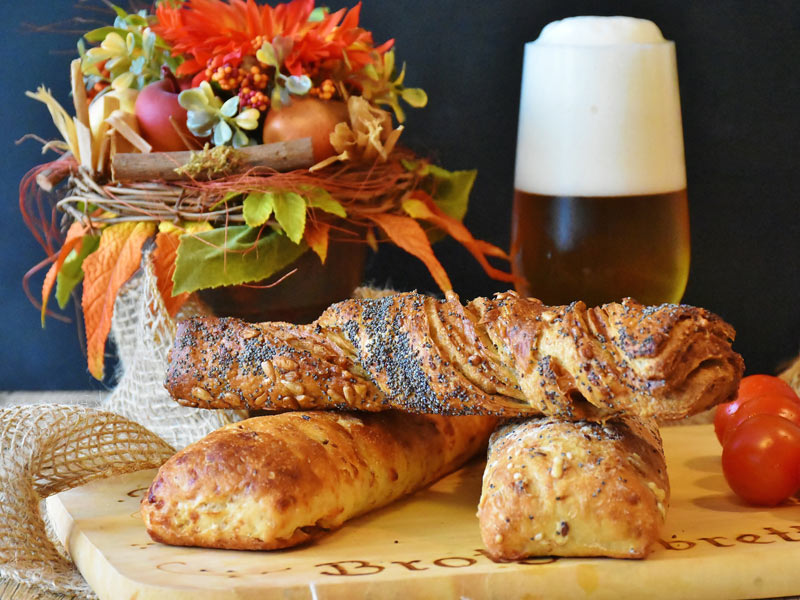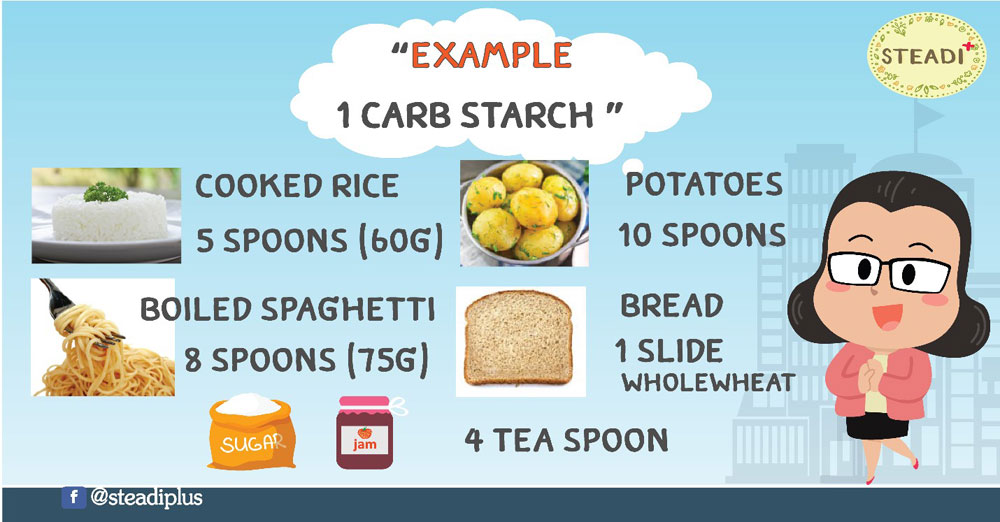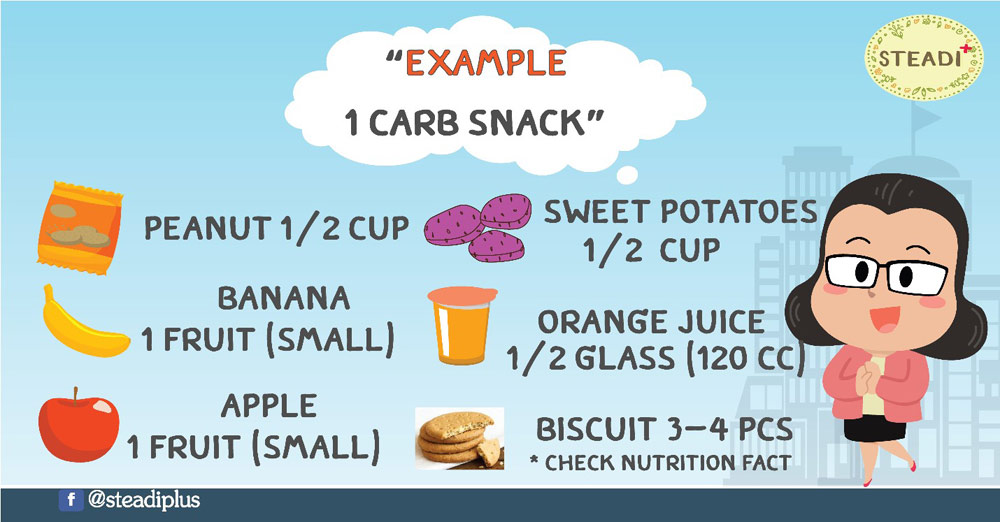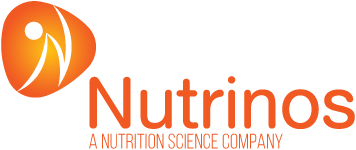‘Carb Counting’ for better blood sugar control

What is Carb?
Carb is short for Carbohydrates, one of macronutrients that is source of energy to our body. Grains, starches, potatoes, legumes, fruits and dairy products, these foods contain carbs in different amounts and compositions. When our body digests carb, it will be broken down into glucose and being absorbed into blood stream. This causes blood glucose level to rise. Pancreas then releases insulin to help glucose getting into our body cells and being used as energy for those cells, this natural mechanism also allows our body to keep blood glucose level within normal range.
How Carb counting helps better blood sugar control?
Over consumption of carbohydrate will cause the blood sugar to rise sharply above threshold and will affect health and mind not only to diabetic people, but to healthy individual as well.
‘Carb Counting’ is the technique used to help any individual controlling daily Carb consumption effectively.
Carb Unit is approximately 15 g of carbohydrate (starch or sugar content of a food item).
On average, a medium size person, around 55-60kg of body weight, with light daily physical activity require around 1500-1600 kcal. This person will require energy from Carbohydrate at around 13 Carb units per day.
The best way to control blood sugar level throughout the day is to average out daily consumption of Carb. Having excessive amount of Carb in any single meal will lead to blood sugar swing.
Example of 5 meal-plan for 13 Carb units for steady daily blood sugar level:
Breakfast 3 Carb units + late morning snack 2 Carb units + Lunch 3 Carb units + afternoon snack 2 Carb units + Dinner 3 Carb units
By knowing the amount of Carb unit per serving size of food you normally consume will help you planning your meal effectively which will allow you to enjoy food you like while keeping blood sugar level steady throughout the day.
Example of 1-Carb Unit in common Food items
Staple food
1 Slice of whole wheat bread
10 table spoons of boiled potatoes
8 table spoons of boiled spaghetti (75g)
5 spoons of cooked rice (60g)
Snack
½ cup of sweet potatoes
½ cup of fresh fruit juice (120 cc)
½ cup of roasted peanut
1 small fruit of Banana / Apple
3-4 pieces of biscuit *always recheck with nutrition label of the product
Sugar
4 tea spoons of table sugar or Jam
*Limit the amount of added sugar to within 6 tea spoons per day to stay healthy


Author: Watcharee Dissayabutr; MSC. Nutrition, Kings College London
Source: American Diabetes Association (www.diabetes.org), Diabetesatlas.org
